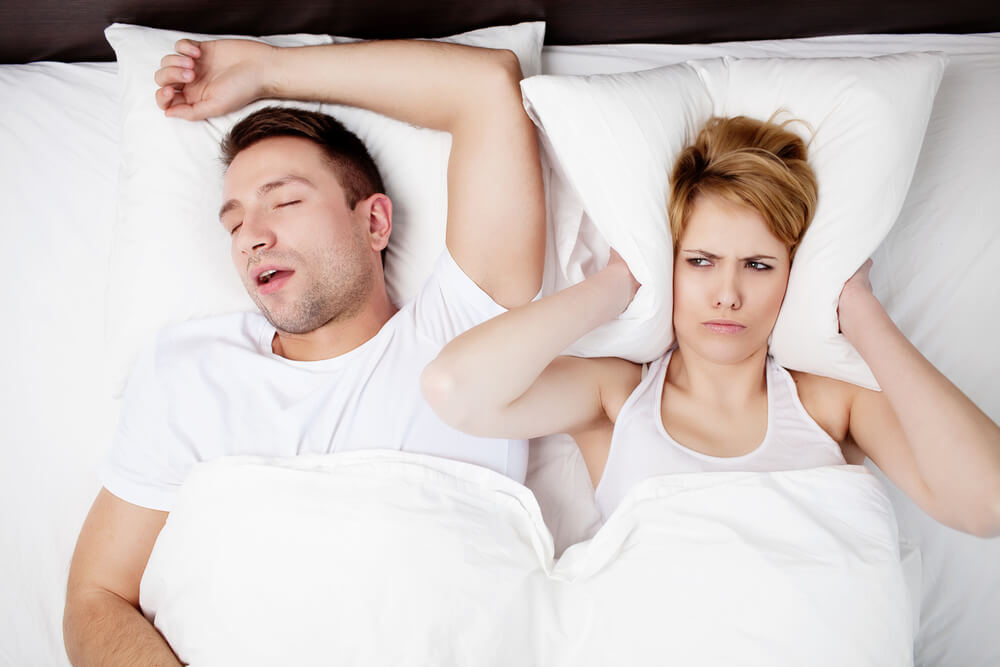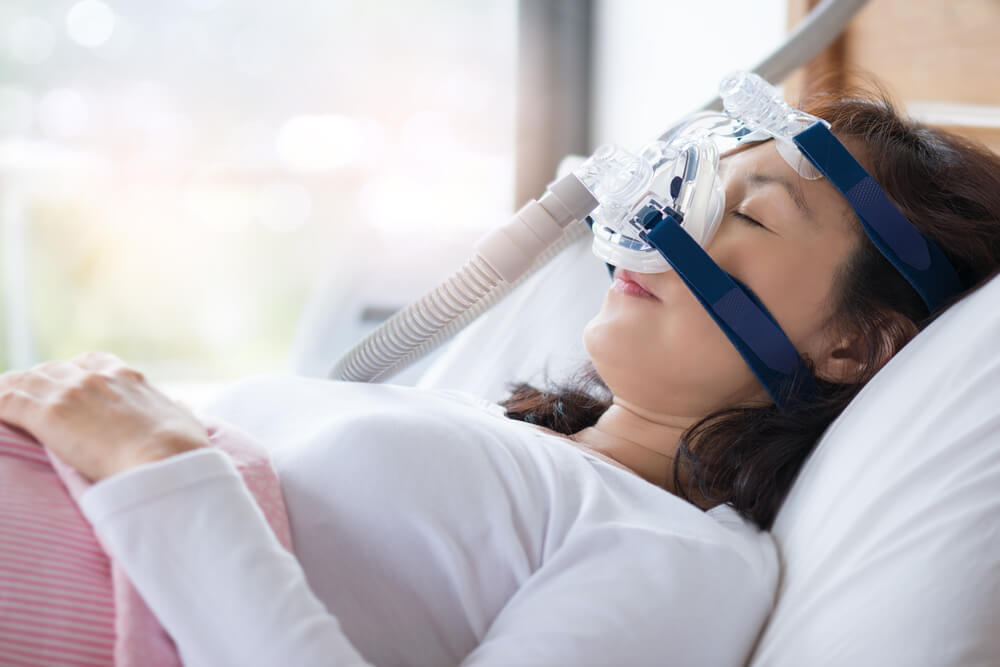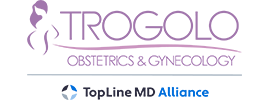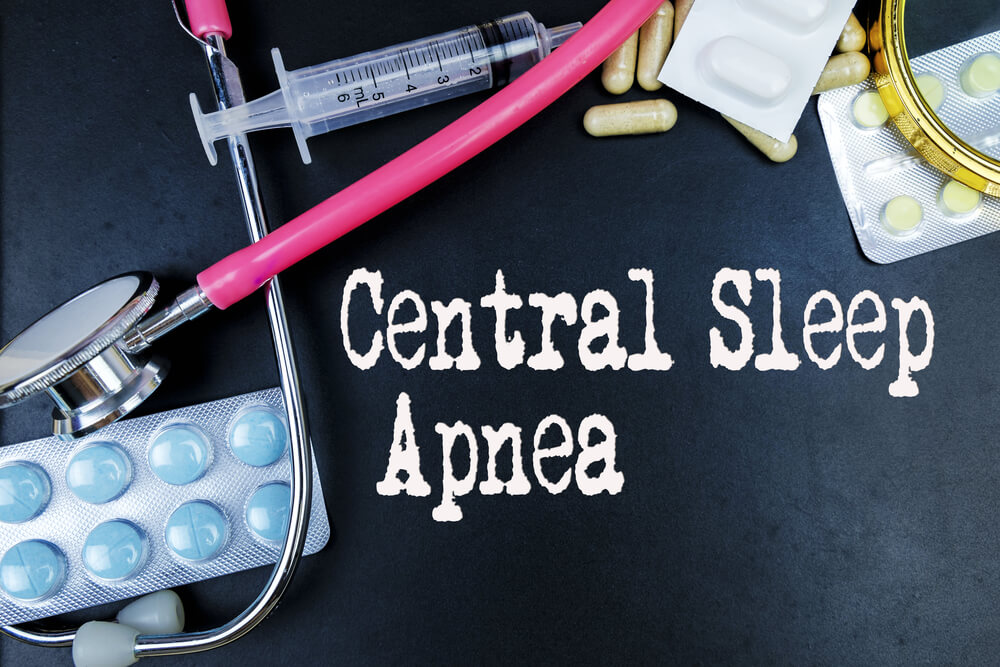A respiratory disorder that makes one stop and start breathing repeatedly during sleep is known as central sleep apnea. There are other types of this disorder such as obstructive sleep apnea, but the so-called central one occurs due to the poor connection between the brain and breathing control muscles. It’s much rarer than the obstructive sleep apnea, but also more concerning. After all, some of the more serious causes of central sleep apnea include conditions such as stroke or heart failure. In that respect, treating the preexisting conditions could also end up treating central sleep apnea, together with breathing devices and supplemental oxygen.
Symptoms of Central Sleep Apnea
If you’re wondering whether you suffer from this disorder or not, consider the following central sleep apnea symptoms:
- You or someone else have noticed clear stops and irregularities in your breathing during sleep
- You tend to wake up suddenly due to the lack of oxygen
- Breathing properly is difficult until you sit up straight
- You suffer from insomnia
- During the day, you feel very sleepy and tired
- You feel the pain in your chest when you go to bed
- It’s challenging for you to concentrate
- You suffer from mood swings and morning headaches
- You’ve started snoring more obviously
- Tolerance for physical activity is very low
Keep in mind that snoring loudly doesn’t have to be a sign of central sleep apnea per se. It’s much more common in patients with obstructive sleep apnea or other disorders involving airflow obstructions. If you notice the first five above-listed symptoms continuously, you should seek medical help.

What Causes Central Sleep Apnea
As mentioned, central sleep apnea happens when your brain is unable to send proper signals to the muscles that make you breathe. There are several different health conditions that could have a hand in causing central sleep apnea. In that respect, different central sleep apnea causes also create different types of sleep apnea.
-
Cheyne-Stokes Breathing
Cheyne-Stokes breathing is usually triggered by serious conditions such as stroke and heart failure. This particular type of central sleep apnea involves different effort levels in breathing. That said, breathing and airflow can increase at some point, but, on the other hand, they can also decrease for as low as stopping completely.
-
Drug-Induced Apnea
Some drugs can affect your breathing during sleep, even going as far as making you stop breathing completely for a short while. These are commonly opioid drugs such as morphine, oxycodone, codeine, etc.
-
High-Altitude Periodic Breathing
High-altitude periodic breathing has the same characteristics as Cheyne-Stokes breathing, but it typically occurs due to sleeping at very high altitudes.
-
Treatment-Emergent Central Sleep Apnea
Treatment-emergent central sleep apnea is a rare condition that can sometimes happen to people who are already suffering from obstructive sleep apnea and use continuous positive airway pressure to treat it.
-
Medical Condition-Induced Central Sleep Apnea
Central sleep apnea can also be triggered by other health conditions aside from stroke and heart failure, such as end-stage kidney disease, for example.
-
Idiopathic (Primary) Central Sleep Apnea
Unfortunately, there’s no known cause for this particular type of central sleep apnea.
One should never ignore central sleep apnea. This is a serious respiratory disorder that could lead to many other complications and a significant drop in the quality of life. Severe fatigue and daytime drowsiness are commonly associated with central sleep apnea and can cause a lot of problems for the affected individual. What’s worse, the lack of necessary oxygen during sleep could end up affecting your heart health, which is even more dangerous when an underlying heart condition is present.
Treatments of Central Sleep Apnea
Depending on your existing health conditions and the disorder you have, there are several different central sleep apnea treatment options.
-
Dealing with Associated Medical Problems
As stated, a very common cause of sleep apnea can be found in other health conditions. In that sense, treating these conditions could end up treating the breathing issue as well.
-
Reducing the Dose of Opioid Medications
In case the main culprit of your central sleep apnea is the opioid drug you’re taking, chances are your doctor will reduce the dose of the said drug gradually.
-
Continuous Positive Airway Pressure (CPAP)
CPAP is basically a process that utilizes a mask that a patient should wear over their nose and mouth during sleep. It’s commonly prescribed as a treatment for obstructive sleep apnea as the attached pump pushes pressurized air continuously. However, it’s possible for the CPAP to keep the airways from closing, which can end up leading to central sleep apnea. Adjusting the air pressure is possible, so don’t hesitate to talk to your doctor if you feel uncomfortable.
-
Adaptive Servo-Ventilation (ASV)
In case CPAP wasn’t a good treatment for your case of sleep apnea, you might be prescribed ASV, another type of device that delivers pressurized air into your airways. Essentially, ASV regulates the process of inhalation and balances out your breathing patterns. It can also stimulate a breath if you skip out on it for far too long. However, it’s not a good solution for people with an underlying heart condition.

-
Bilevel Positive Airway Pressure (BPAP)
BPAP is very similar to ASV in the sense that it controls the air pressure for inhaling and exhaling. The difference is in the set amount of pressure that BPAP has. It can also deliver a breath in case the patient missed one for more than a couple of seconds. Still, BPAP is not recommended to people suffering from heart failure as it can end up worsening their condition.
-
Supplemental Oxygen
There are several different devices that can help with supplemental oxygen delivery to your lungs and airways while you sleep. Your doctor should determine the best one for you. Make sure to discuss your issues openly so that there’s little to no room for any mistakes.
-
Medications for Central Sleep Apnea
Meds such as acetazolamide or theophylline are commonly used to treat central sleep apnea orally, as they stimulate the breathing process. They are also a good solution for high altitudes, where the air pressure is generally lower.
-
Surgery
Finally, if everything else fails, it’s possible to get surgery that will manage the symptoms of central sleep apnea. This is especially effective for people with heart conditions. The process involves the implementation of a nerve stimulator inside the patient’s chest that will then stimulate the brain-diaphragm nerve, thus regulating breathing during sleep.
Keep in mind that it might take a while for you to get diagnosed with central sleep apnea. This is why it’s so important to disclose all of your symptoms to your doctors quickly and thoroughly. You might be referred to a sleep specialist as well. It’s also common for specialized medical professionals to be involved, such as neurologists and cardiologists.
It’s important that you open up to a doctor that you can trust and feel comfortable with. We at Trogolo Obstetrics and Gynecology strive to provide all of our patients with the care, patience, understanding, and top-notch service that they deserve. At Trogolo Obstetrics and Gynecology you can count on friendly and experienced staff and a pleasant atmosphere that will help you relax and take the necessary steps to better your health.


